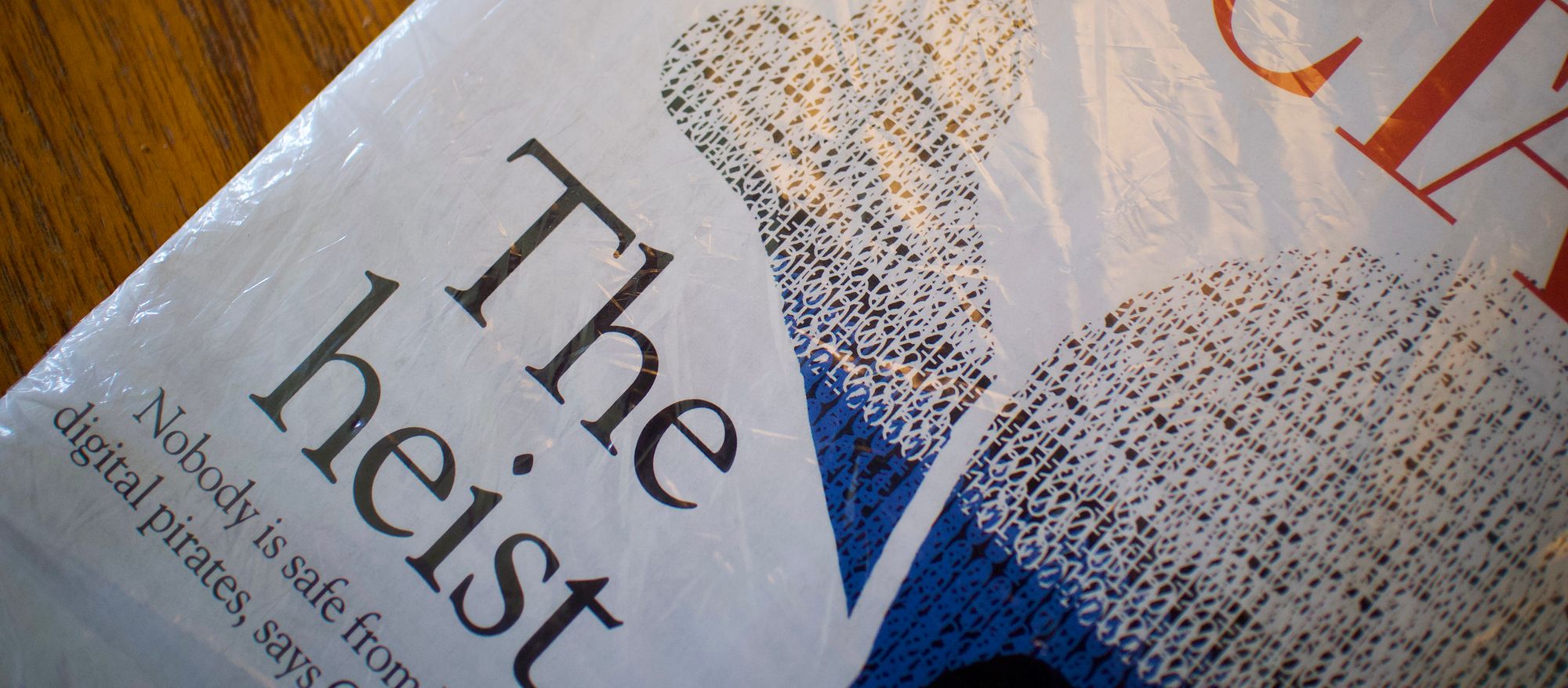Marcus Rashford, The Spectator hoax and the power of confirmation bias
For a story we know next to nothing about for sure, a Spectator piece that was never published has occupied a huge amount of media attention.

For the second time in a month, Media Twitter is alight with discussion of a rumoured smear of footballer and campaigner Marcus Rashford by The Spectator, a right-leaning British political magazine. The whole discussion is both full of confirmation-bias driven certainty and little provable fact at all. And, whichever way you look at it, it should raise concerns about the level of credulity and self-analysis of those journalists who are too invested in particular political viewpoints.
There's a lesson for all of us in the dangers of confirmation bias in that.
Let's look at the story of this odd little saga.
It started with a tweet
One evening, England footballer Marcus Rashford, who has become champion of free meals for disadvantaged children, tweeted this:
Just heard @spectator are planning to run a story on me tomorrow about how I have benefitted commercially in the last 18 months…To clarify, I don’t need to partner with brands. I partner because I want to progress the work I do off the pitch and…(1)
— Marcus Rashford MBE (@MarcusRashford) July 20, 2021
Cue explosion on Twitter, as the cosy little circle of media and political types that dominate a subset of the discussion there leapt on this. The media's relationship with Twitter being what it is these days, outlets like Bustle were able to get an entire article out of a four tweet thread, with no corroborating information.
Silence of The Spectator
The Spectator itself has consistently not given any response when asked for comment. And no article was every published.
So, until yesterday, all we knew was:
- Rashford was made aware of a possible Spectator story on him — but we don't know by whom.
- That said piece has failed to appear in the Spectator either online or in print.
I stayed away from the whole thing, feeling that there were a number of odd things about it, not least that The Spectator is an opinion, comment and analysis magazine, not an outlet for investigative journalism. When nothing emerged, I assumed someone writing for the mag had poked around a lead, found nothing, and dropped the story. That's how journalism works, right?
The Gruff Bomb
And then, this dropped:

Grufferty is a comic, occasional satirist, and charity worker. She lays out in the post exactly how she set about pranking the magazine via its "Wokeyleaks" correspondent:
Wokeyleaks was asking for people to send in “anonymous” examples of “woke-culture war crimes” from workplaces, and other settings. Lol, what losers, I thought to myself (Can one think a lol? Remember, it was the second (or third?) lockdown and I was very bored). So I decided to amuse myself by sending them some fake stories. Surely they wouldn’t take this seriously, I mused, as I hammered out frankly ludicrous claims about the great and the good; and thought little more of it.
It's worth noting that she offers no direct proof of her story: no screengrabs of correspondence, for example, just quotes from it. Certainly some details ring true, including this quote from her contact at the magazine:
Spec doesn't really do investigative stuff so this is all a bit new to them.
That matches closely with my own thoughts, expressed above. And the timeline seems to work. Rashford's tweet was on a Tuesday. The Spectator distributes on a Thursday, presumably printing overnight Wednesday to Thursday. It's certainly possible that The Spectator itself was the source of Rashford being made aware of the story, as they reached out to do fact-checking and get a response from him before it went to press on the Wednesday.
(But, says a little worried voice at the back of my head, would they really get that close to publishing a single-source story without any external corroboration at all? They surely can't have given the piece to a lawyer, because no media lawyer I've every worked with would ever let them run something like that…)
That's the thing. Plausible as much of this account is, we have no actual proof. Hopefully some media reporters are working on that right now…
Proof is a good thing in journalism. Just sayin'.
The seduction of cognitive bias

This whole thing is an exercise is showing up how dangerous cognitive bias is:
- If The Spectator really got to the point of getting ready to publish such an obvious hoax, their own desire for it to be true must surely have played a part.
- The response of Media Twitter is rife with a desperate belief that The Speccie was trying to smear Rashford, because they'd love people with differing views to be the bad guys.
Mic Wright, for example, has gone full Fox Mulder with his extensive and entertainingly vitriolic Substack piece on it this morning:
Again, knowing just what a combination of credulous and cruel [Spectator editor] Nelson and [deputy] Gray are, this exchange feels believable.
Yes, he wants to believe. And he makes some good points along the way about the rather cosy relationship between the magazine and the current Tory administration, including the fact that its commissioning editor is married to one Dominic Cummings. He doesn't mention that its political editor is married to the lady who was briefly the prime minister's spokesperson, though. And wait until you hear who his best man was…
It's worth noting that Wright is no great fan of the self-proclaimed hoaxer either:
The ‘sting’ — poorly executed and hubristically recounted — has proved nothing. It caused Marcus Rashford more worry and gives The Spectator the chance to claim that it was the victim of a hoax which it stopped at the last moment.
However, the fact that so many words (including these very ones you're reading right now, alas) and so much attention in the journalistic and politics worlds has been devoted to what was, at best, a story which was killed when it didn't stack up is troubling. It's all based, essentially, on one tweet and a single Substack post. No corroboration, no second sourcing, not even any screenshots of the actual emails from The Spectator.
It's all based on what people want to be true, rather than what we know to be true. That's conformation bias, folks.
And we should be better than that.
I was reticent to even retweet Jim Waterson's retweet of it because it's a bit flimsy as is. Don't want to get got like the Spectator got got
— Chris Sutcliffe (@chrismsutcliffe) August 6, 2021
The results of the Attention Game are unpredictable
And the net result seems to have been some unpleasant distraction for Rashford and… good for The Spectator? People who loathe it already will continue to do so. But others have started paying attention to it:
The outcome seems to have been:
— dan barker (@danbarker) August 5, 2021
1. Lots of hassle for Marcus Rashford
2. Large gain in followers for the @spectator (img 1)
3. Large spike in Google searches for 'the spectator' (img 2)
4. A proof point of some sort of dirty tricks campaign, which they foiled at the last minute pic.twitter.com/B1e3mr3r04
So, that seems to suggest that there's at least some people out there who would rather like a story exposing Rashford as more self-interested to be true. And are interested in following a title that might share that desire. They too want their biases confirmed. And they might end up going down the Spectator’s funnel and being converted into paying readers.
So, if the aim of all the fuss was to make The Spectator look foolish, they might well end up crying their way to the bank.
If anything, what we should all take away from this is that you should be more sceptical of new information than seems to match your biases, be it a story handed to you on a plate, or a tale of a magazine you dislike's foolishness. That nasty wee confirmation bias lurking in your skull will stop you questioning it as you would information that contradicts your beliefs. And you might well be taken in.
Anyone working in the media needs that level of self-awareness in the current media ecosystem.
Disclosures:
- I've been a Spectator subscriber since 2016, when the Brexit vote made it plain to me that I didn't understand the UK right, and it was about time I did. Reading the New Statesman is like slipping on a cosy cardigan as it reflects my own views back at me. The Spectator is very much not that…
- One recent student I've taught at City has just joined the title.






